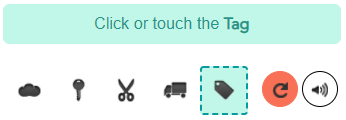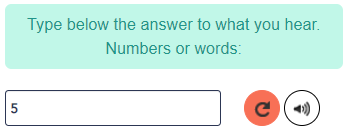Compare RV Insurance Rates
Learn more about the factors that dictate your RV insurance rates, compare top insurers, and save.
 Your information is secure.
Your information is secure. RV
Before your next big trip, whether it's an RV, motor home, travel trailer, or camper make sure you have the right RV insurance policy. Most states in the US required liability insurance on your RV to operate on public streets
What is RV insurance?
RV insurance is an agreement between you and your insurance company that protects your motorhome, travel trailer, camper, fifth wheel, etc. You'll choose from a variety of coverages meant to protect your vehicle offer weather you’re on trips, vacations or if you use your RV as a permanent residence. If you're 'driving' a motorhome, you'll also need liability coverage to stay legal on the road. But if you're 'pulling' a travel trailer, your state won't require you to insure the RV, as you're already covered for liability on your auto insurance policy.


How does RV insurance work?
When you buy RV insurance, you will answer simple questions about driver and your RV, and how often you use it. You'll then select coverages that will best protect you and your vehicle. Generally, more coverage means a higher price. If you damage your vehicle or you're responsible for someone else's damages or injuries, you'll file a 'claim' with your insurer. If your claim is covered, they'll pay for the losses or injuries up to your coverage limits.
Do I need motorhome insurance ?
RVers encounter situations that are unique to life on the road. So with that in mind, do not forget to compare enhanced Motorized RV and Towable RV insurance policies. These enhanced recreational vehicle insurance coverages include:


Do I need travel trailer insurance?
Getting the best rate or the right insurance coverage for your RV isn’t as difficult as changing a tire on the side of the Interstate but tips below helps:
Like with other types of insurance, RV insurance pricing comes down to risk. How likely are you to file a claim and what will it cost to repair or replace your motorhome or trailer?
Recreational vs. Full-timer's
RV insurance is generally divided into two basic categories: recreational and full-timer's.
Recreational is for you if you aren't living in your RV full time and will cover your RV inside and out while on the road or parked at a campsite.
Full-timer's insurance is meant for those using a motorhome or travel trailer as their primary residence. Many of the coverages will match up with a recreational policy, but you'll be able to add additional coverages that are similar to homeowners insurance, like personal liability and loss assessment.
RV Insurance Coverage
RVers encounter situations that are unique to life on the road. So with that in mind, do not forget to compare enhanced Motorized RV and Towable RV insurance policies. These enhanced recreational vehicle insurance coverages include:
Total Loss Replacement – provides you with a new, comparably-equipped RV if your RV is totaled within its first four model years. When the RV is in the fifth through seventh model years, the settlement is the higher of the actual cash value at the time of loss or the original documented purchase price. After the seventh model year, the settlement is on an actual cash value basis. (Coverage availability may vary by state and vehicle value.)


Comprehensive and collision: Comprehensive protects your RV from theft, vandalism, windshield damage, acts of nature, rocks and debris kicked up by other vehicles, and accidents/impact with animals. A deductible applies.
Bodily injury and property damage liability: Pays for damage or injuries you cause while driving your motorhome. It also covers legal fees that may result from the accident. In most states, this is the only required coverage. Coverage does not apply to travel trailer policies


Uninsured/underinsured property damage and bodily injury: If your motorhome is hit and damaged by a driver who isn't carrying insurance or doesn't have enough to cover the damage they've caused, uninsured/underinsured motorist property damage coverage will pay to repair or replace it (up to your policy's limits). Same goes for injuries you suffer at the hands of an uninsured or underinsured driver—we'll cover your injuries up to the limits of your policy. Coverage does not apply to travel trailer policies.
Medical payments: Covers medical bills, up to the limits you choose, for you and your passengers if you're in an accident, regardless of fault. Coverage does not apply to travel trailer policies.


Replacement Cost Personal Effects – pays for the replacement of your personal items in your RV that resulted from a covered loss. Range of Replacement Cost Personal Effects coverage is automatically included at no additional cost with Comprehensive and Collision coverage depending upon the state in which the RV is rated. Additional limits of coverage are available up to $100,000 for additional premium.
Vacation Liability – pays for Bodily Injury and Property Damage losses that occur at your vacation site.


Emergency Expense Coverage – pays your expenses for hotels and transportation due to a covered loss.
Special Windshield Deductible – charges nothing for RV windshield repair, and $50-150 for RV windshield replacement.


Recreational Vehicle Medical Payments Coverage – pays the cost for necessary medical treatment that is caused in an RV accident, regardless of fault.

Tips for quoting RV insurance
Getting the best rate or the right insurance coverage for your RV isn’t as difficult as changing a tire on the side of the Interstate but tips below helps:
Look up your RV's value: Knowing your RV’s value will help determine how much coverage you’ll need. Sites like NADA.com or KBB are a good starting point for researching your RV’s current worth.
Pick the coverages you need: For example, personal effects coverage may make sense for you if you travel with a lot of expensive gear, such as a laptop or camera.
Safety first: A clean driving record with both your car and RV can help lower your insurance costs.

How is RV/motorhome insurance priced?
Like with other types of insurance, RV insurance pricing comes down to risk. How likely are you to file a claim and what will it cost to repair or replace your motorhome or trailer?
Here are some factors that will help determine what you'll pay:

Type: A large, state-of-the-art motorhome will typically cost more to insure than a smaller, used RV. Typically Class A motorhomes are more expensive to insure than Class C motorhomes because of size and replacement cost.

Use: Usually, the more you use your RV, the more you'll pay to insure it as you’re more to file a claim. If you live in your RV, you are more of a risk to your insurer than someone who uses their RV recreationally, a few weekends per year.

Driving experience: It's a whole new ballgame when driving a motorhome compared to a car. Adjusting to a bigger vehicle, more blind spots, and challenging turns takes practice, so RV drivers with more experience will pay less than newer drivers.
How To Avoid Common RV Problems
Tire Blowouts
“Tire blowouts are very common—especially in hotter climates where highways pavement are hot.
Research the tire load rating.
Use an equalizer system as part of your towing equipment
Know the ideal inflation level of your tires

Roof And Window Leaks
“All campers are prone to water leaks, and they all require regular semi-annual maintenance.

Toilet Malfunctions
Unless you have a bad seal or gasket causing a leak around the toilet, the main thing you’re likely to face is clogging

Burst Water Lines
Improper water pressure can cause problems in any weather

Battery Failure
Corrosion is a major battery killer, so regularly inspect batteries


















